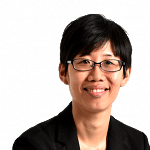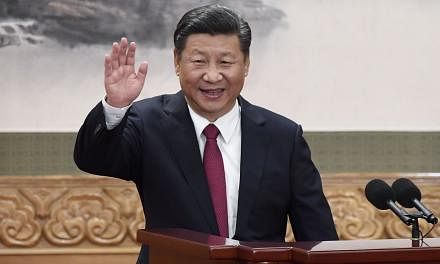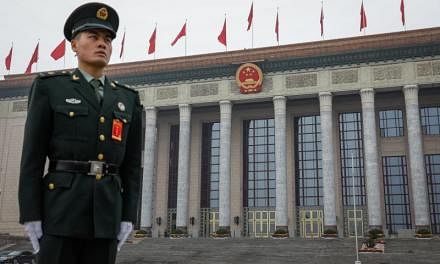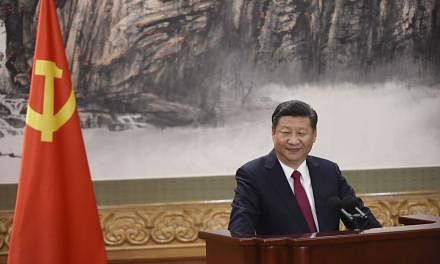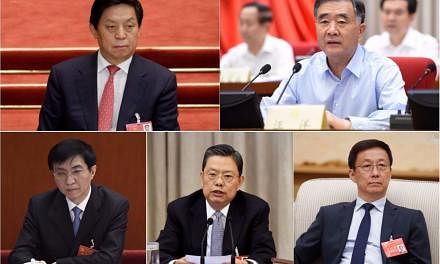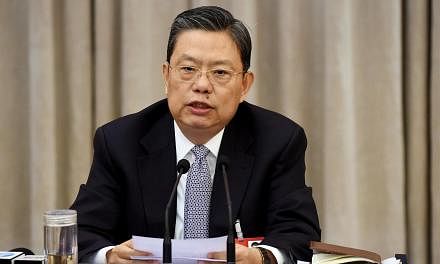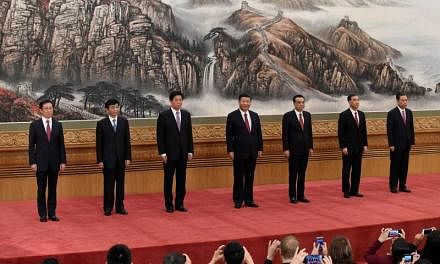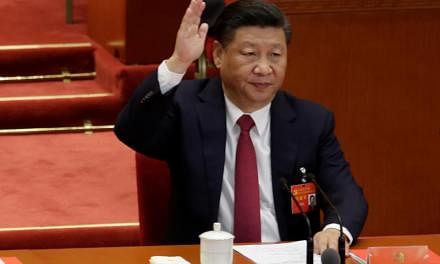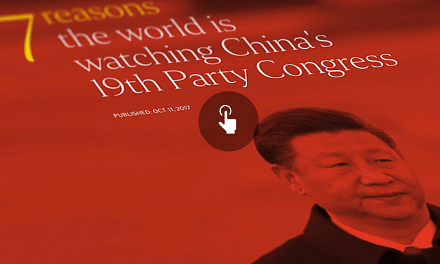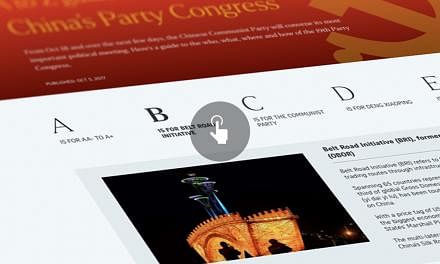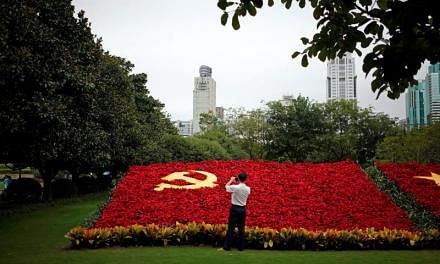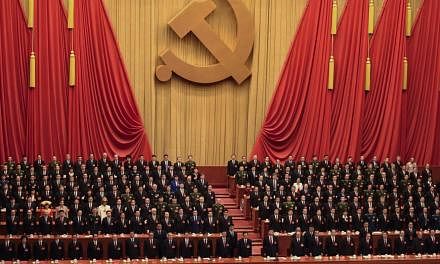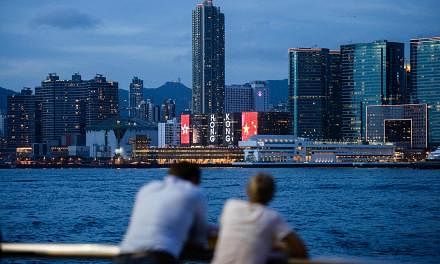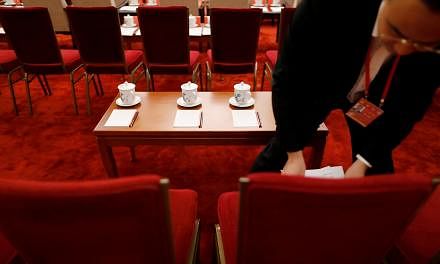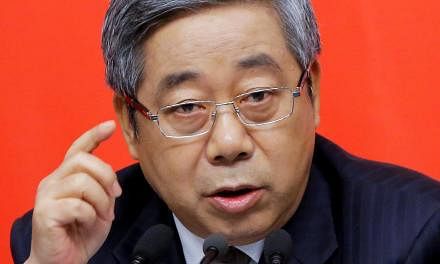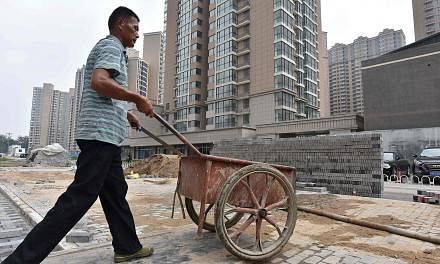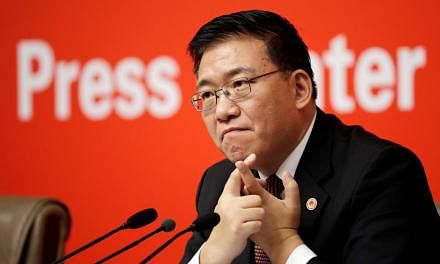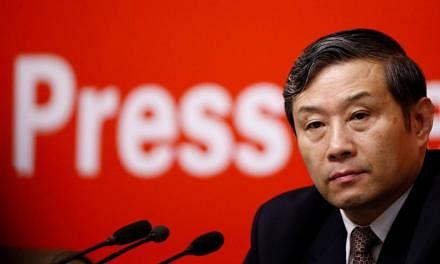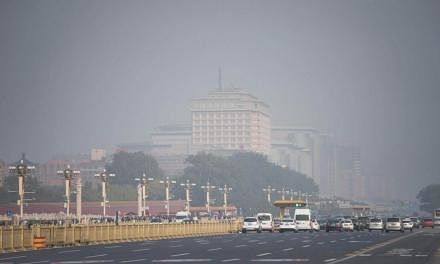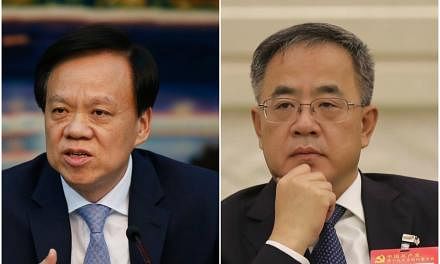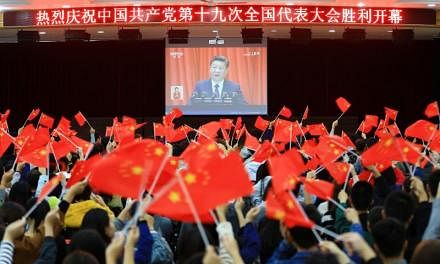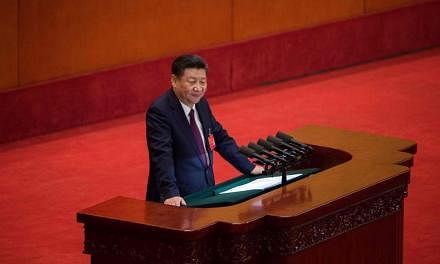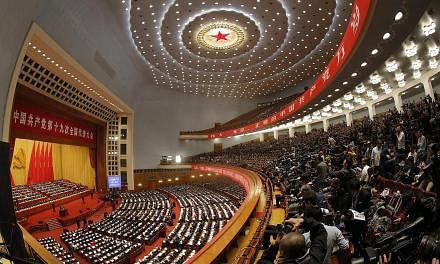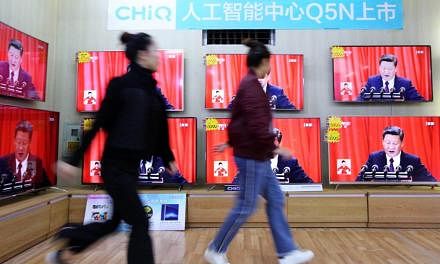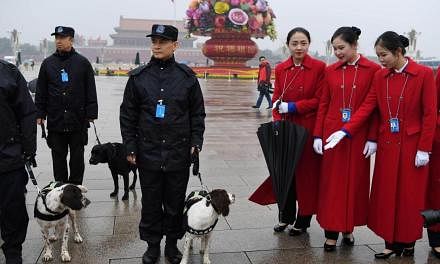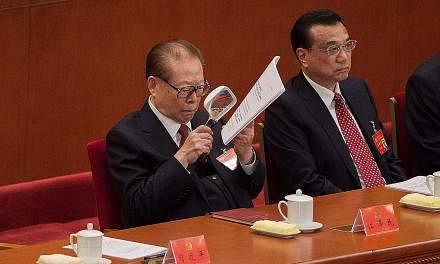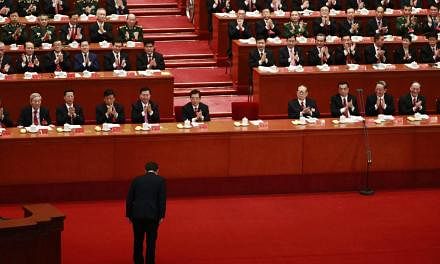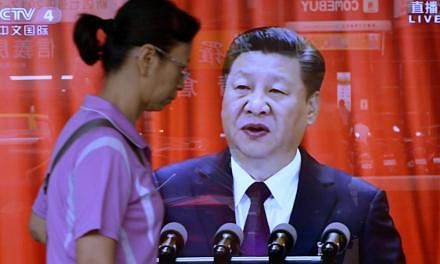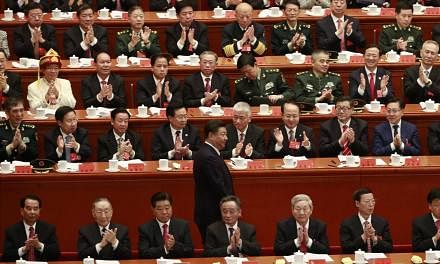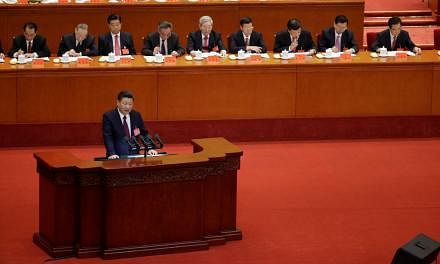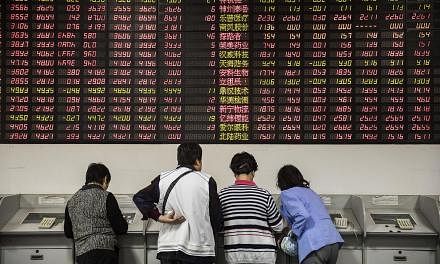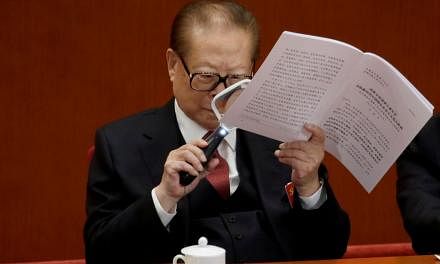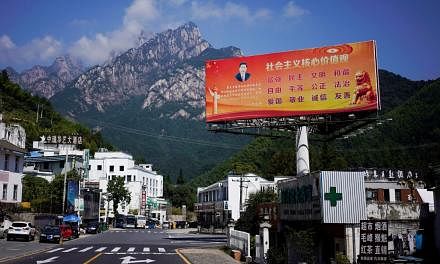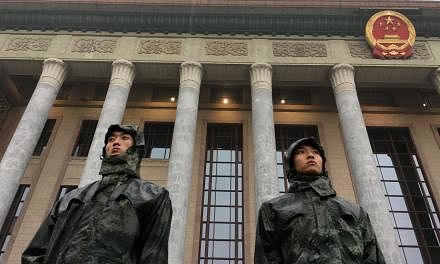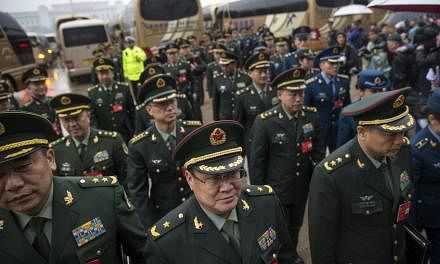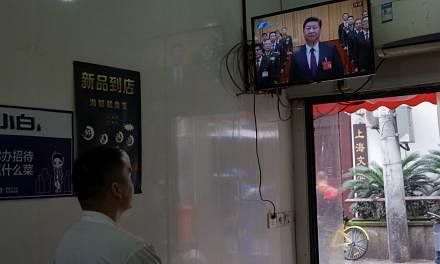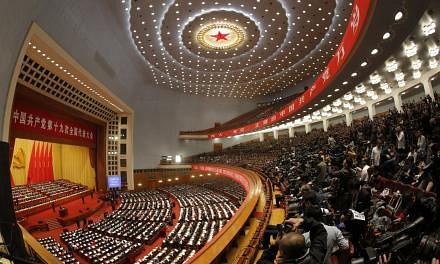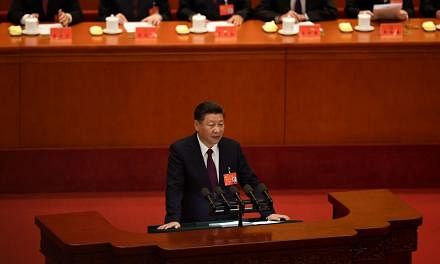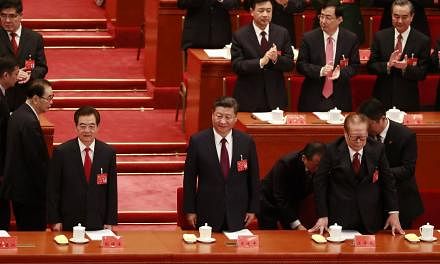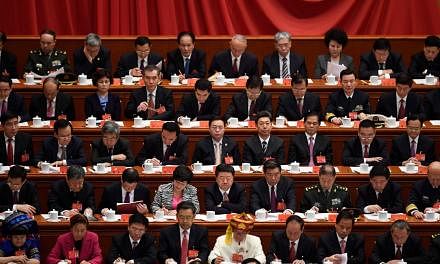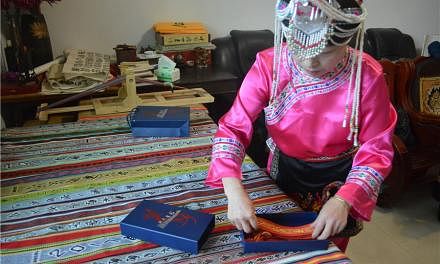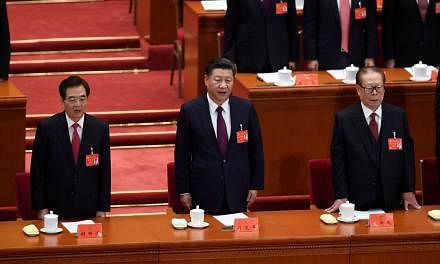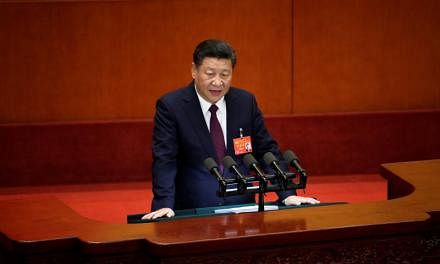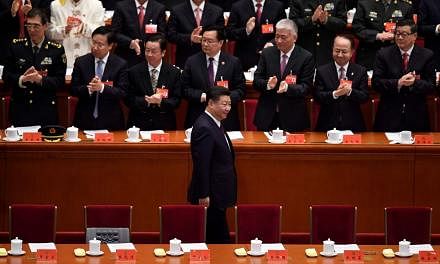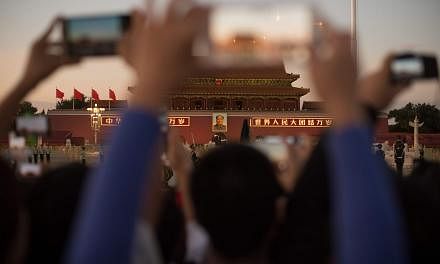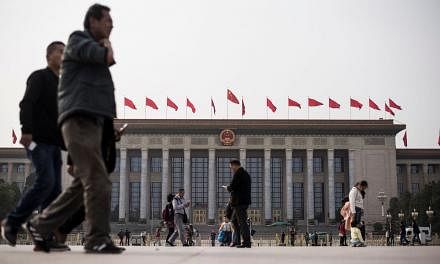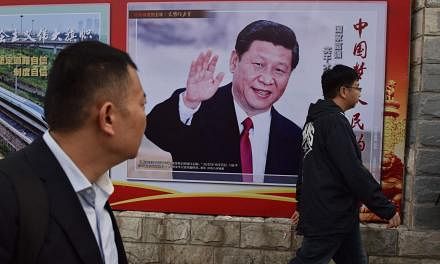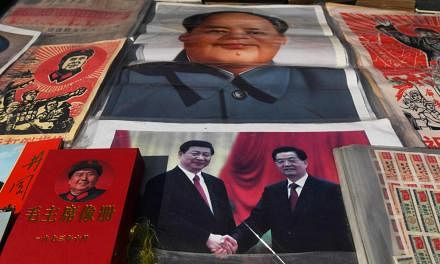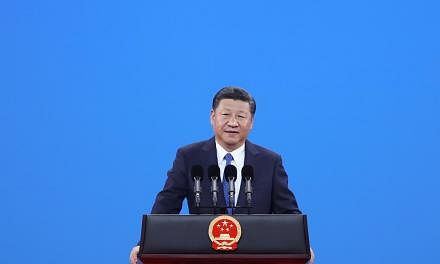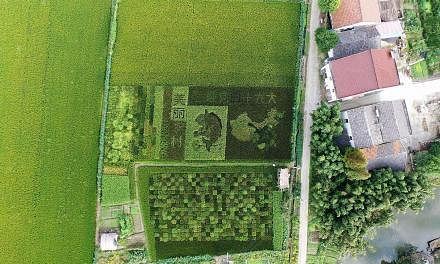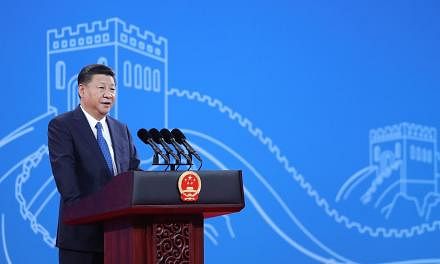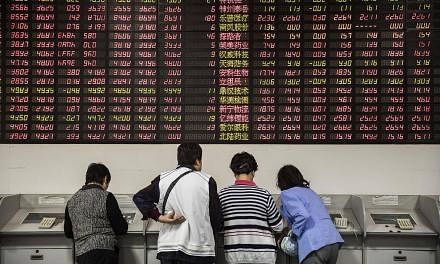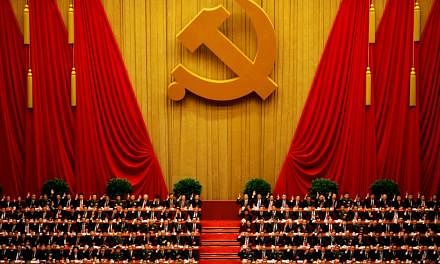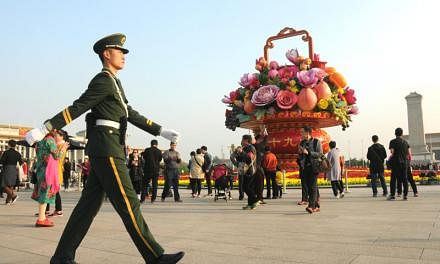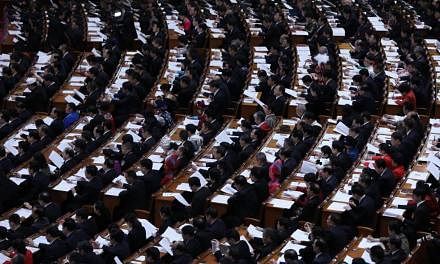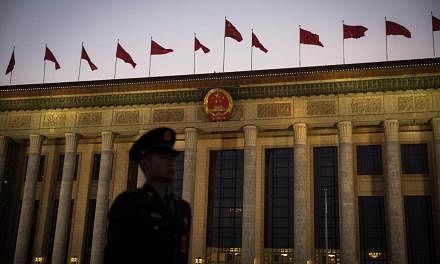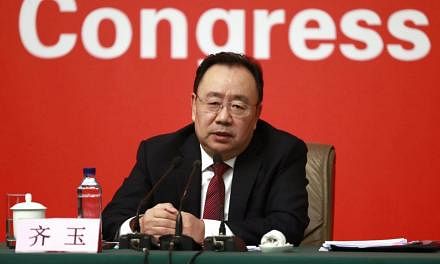BEIJING - Chinese President Xi Jinping reiterated on Wednesday (Oct 18) that China will defend its sovereignty and the completeness of its territories, and will not tolerate a repeat of history where the country was broken up.
"We have sufficient abilities to thwart any form of Taiwan independence attempts," said Mr Xi at the opening of the China Communist Party's five-yearly national congress.
But he balanced his strong words with calls for talks and unobstructed exchanges between the two sides, as long as Taiwan recognises the 1992 consensus.
It is a tacit agreement that both China and Taiwan belong to one China, but each side is free to have its own interpretation of what it means.
In response to Mr Xi's comments, Taiwan's government said it was "absolutely" the right of Taiwan's 23 million people to decide their future.
The perpetration of democratic system is a core value of Taiwan, the Mainland Affairs Council (MAC) said.
Cross-strait ties have chilled considerably since Ms Tsai Ing-wen, leader of the pro-independence Democratic Progressive Party, won the presidential election last year.
The Taiwanese leader has refused to acknowledge the 1992 consensus, which Beijing regards as the political basis for peaceful cross-strait ties.
Beijing considers Taiwan as a renegade province and Mr Xi's goal is to push for a peaceful unification.
Since Ms Tsai officially took power in May last year, Beijing has cut off official communication with Taiwan, and taken steps to further squeeze its international space.
China faces similar separatist threats in Hong Kong, which was returned to its rule from the British 20 years ago in 1997.
A wave of pro-independence movement has swept over the special administrative region in recent years, with young Hong Kongers demanding for more democratic rights.
At the 18th party congress, then-Chinese President Hu Jintao said Beijing would "fully and faithfully implement the principle of 'one country, two systems' ".
This was followed with a 15,500-word white paper issued in 2014 by the State Council on the practice of the "one country, two systems" policy. The paper reasserts Beijing's "comprehensive jurisdiction" over the city.
Two months later, Beijing announced that it has the right to vet candidates for the chief executive election, as part of a rigid framework for political reforms that provided for universal suffrage.
That decision sparked a 79-day pro-democracy Occupy Central protest, which eventually led to the birth of a small but vocal group of pro-independence forces that have since divided Hong Kong society.
In Mr Xi's recent visit to Hong Kong in July, he had called for a consensus over the "one country, two systems" model in the city.
The Chinese leader had said the model is part and parcel of the Chinese dream, his vision to build a moderately prosperous society and to restore the Chinese nation to its former glory.
In his speech on Wednesday, Mr Xi said: "The policy of 'one country, two systems' has proven to be the best solutions to the question of Hong Kong...and the best institutional guarantee for the long-term prosperity and stability of Hong Kong."

